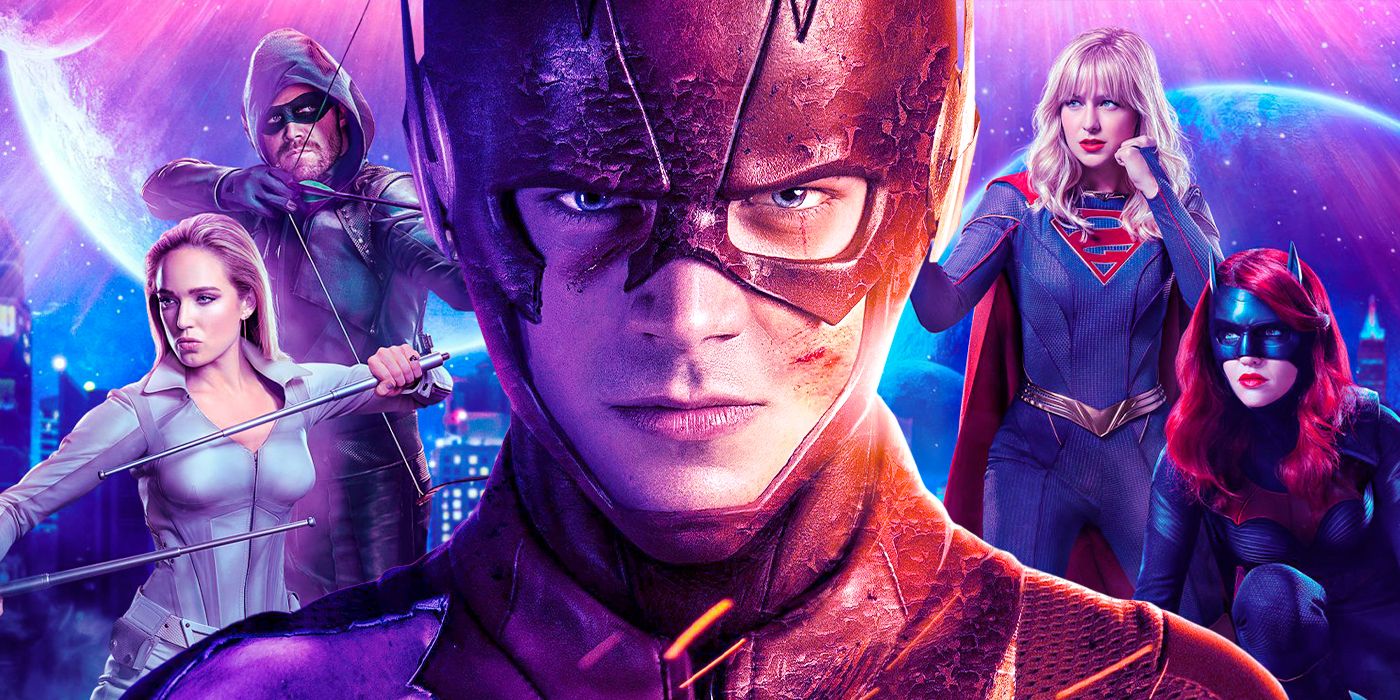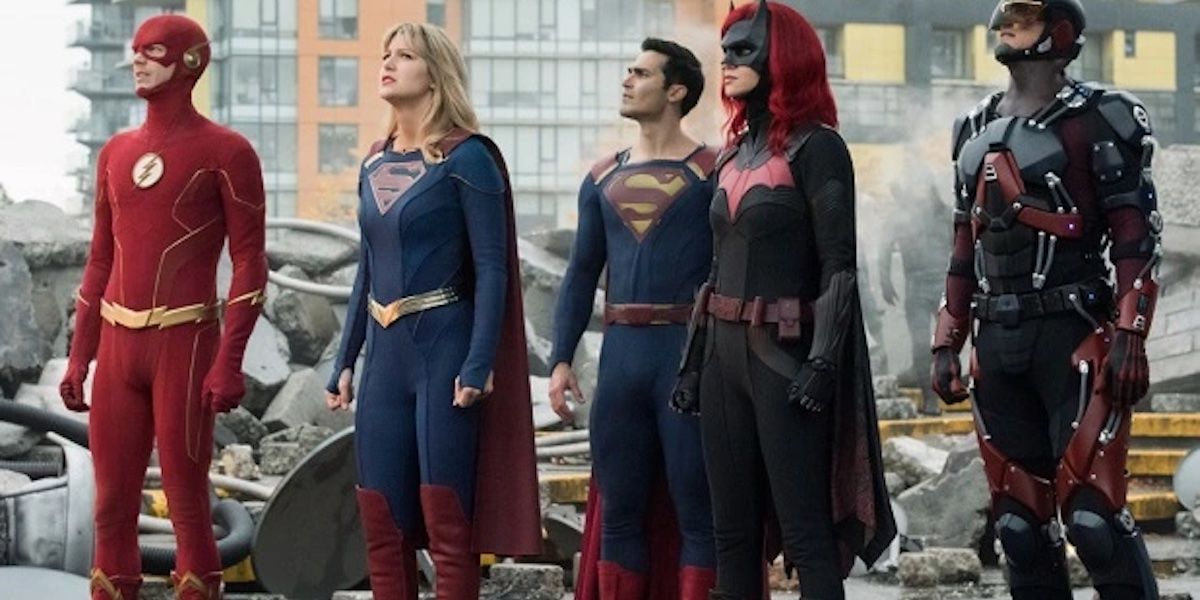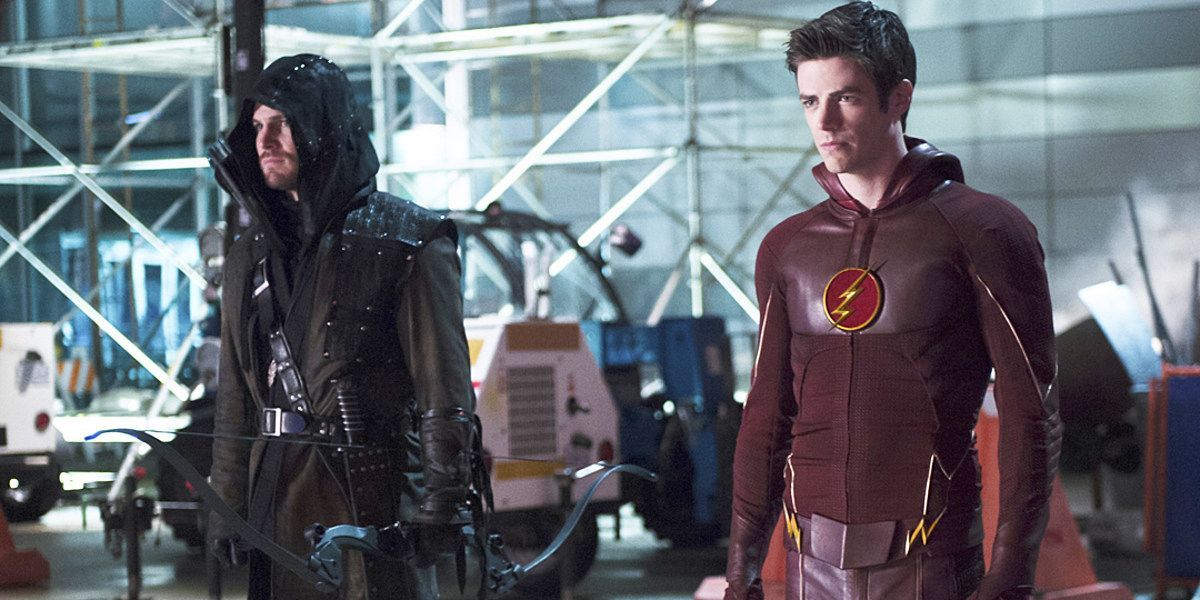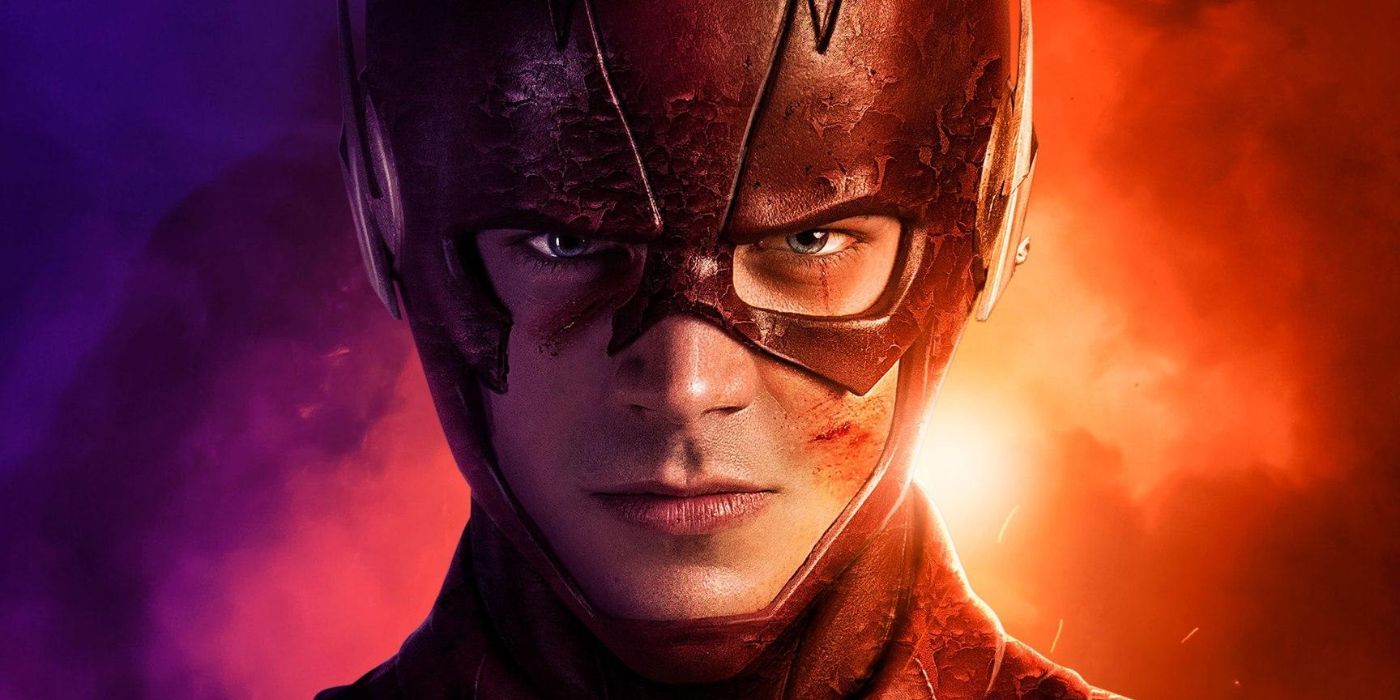The Arrowverse may have technically begun with Arrow in 2012, but it’s safe to say that the CW’s DC television universe wouldn’t exist as we know it today without The Flash. The moment that Barry Allen (Grant Gustin) walked onscreen in Arrow’s second season was the moment the Arrowverse was truly born, expanding the CW’s aspirations from a single show to an interconnected universe of television. Throughout its run, The Flash would be the beating heart of the Arrowverse, the strongest piece of connective tissue through every show and crossover event. And now it is all that remains, given one final truncated season to wrap up not just its own story but the rest of the Arrowverse as we know it. And it is wholly unequipped for that task.
'The Flash' Is a Shadow of Its Former Self
If you haven’t been keeping up with The Flash for its most recent seasons, you might be unaware of the sharp drop in quality it’s experienced over the last few years. While the show’s quality has mostly trended downwards since its first season, the show has hit new lows in the aftermath of 2019’s massive “Crisis on Infinite Earths” crossover and the COVID-19 pandemic. The crossover took place in the middle of The Flash’s sixth season. The beginning of the season told a contained story while also building up to the events of "Crisis," but after "Crisis" the show seemed to lose direction. The story that came after lacked the teeth of previous adventures, made worse by the fact that the season was prematurely cut short by COVID. Subsequent seasons failed to bounce back, riddled with pacing issues and storylines that struggled to feel like they had any impact on the overall narrative of the show. This exacerbated The Flash’s already existing issues of an oversized main cast, increasingly subpar special effects, and crappy dialogue so bad that even the incredibly charismatic cast couldn’t save it.
As Season 9 is beginning, it’s clear that these issues haven’t been rectified. The pacing is still inconsistent, spending most of any given episode having the characters talk about the issue until someone has the idea that will resolve whatever the problem is. There’s very little meaningful action taken in any episode, so rather than being a smooth trip from point A to point B, it’s more of a sudden jump. The writing relies heavily on exposition and technobabble. Characters explain massively traumatic parts of the backstory in monologues that don’t have any oomph because they come out of nowhere. The solutions to new problems rely on faux science without any tangible component for the audience to latch onto, or worse, power-ups that are so inconsistent they make it impossible to watch. Nothing on The Flash has any sense of weight because there’s no concept of what’s possible versus what’s impossible. While it still has its moments from time to time, they are usually brought on by the moments when it brushes up against its better Arrowverse sister shows or by the talented cast struggling to elevate the material they’re working with.
The Arrowverse Is Massive
Given all that, it’s hard to imagine The Flash being up to the task of providing not just a satisfying conclusion for itself but for the Arrowverse as a whole. In the 11 years it’s been around, the Arrowverse has grown to include 6 interconnected shows on the CW, plus an additional 2 animated web series, altogether adding up to a staggering 712 episodes set in the universe. And that’s not counting the shows that have retroactively been pulled under its umbrella, such as the 1990 iteration of The Flash or NBC’s 2014 Constantine, both of which have had their main characters team up with the main heroes of the Arrowverse. And while the universe has largely managed to maintain its brand and kept a certain amount of stylistic and tonal consistency across all its shows, there’s still a lot of variety across those 712 episodes.
The Arrowverse boasts a diverse cast of characters, settings, and tones, from Arrow’s gritty and largely powerless approach to heroics to Supergirl’s earnest and campy sci-fi adventures. Some (like The Flash) prioritized remixing iconic comic storylines into the show’s continuity while others (like Legends of Tomorrow) moved past their specific comic inspirations and forged new paths for superpowered television. Other shows, such as the later arrivals of Black Lightning and Batwoman, sought to not just tell fun superheroic adventures but also explore social issues with more nuance than some of their fellow shows were capable of. This diversity of stories and characters is what truly helped the Arrowverse to stand above its competition, allowing it to grow beyond its humble origins.
'The Flash' Season 9 Doesn’t Have Room for the Arrowverse
That growth is part of the problem though. While the rest of the universe evolved, telling stories about found families of time-traveling superheroes, the darker world of Gotham City, or putting the stories of marginalized people at the forefront, The Flash remained largely the same. It might make passes at darker stories or occasionally attempt commentary, but these are fleeting at best. This was fine when the Arrowverse was alive and well, and other options existed to handle different kinds of stories. But now that it’s expected to wrap up the whole of the Arrowverse, there’s too much to fit into the confines of what The Flash is as a show. The Flash is a campy superhero show through and through, but it takes itself too seriously to capture the whimsy of Supergirl or Legends of Tomorrow. It’s far too full of superpowers to meaningfully interact with the more human threats of Arrow or Batwoman. And it’s struggled to meaningfully represent its marginalized characters in the way Black Lightning or Batwoman strove to.
Even beyond that, The Flash has its own show to wrap up, with limited time to do it. Season 9 will include only 13 episodes, 8 episodes less than the previous average episode count for the show. With its large main cast and 8 seasons worth of storylines to be wrapped up, The Flash is already cutting it close before you factor in the extra pressure of closing out the Arrowverse with a bang. There are a lot of guest appearances slated for this season from both The Flash’s past and across the Arrowverse, including Stephen Amell's Oliver Queen. And while it’s great to bring back these actors for one last hurrah, is there time to give fans the closure they deserve? There’s certainly not enough time to check in with the shows that provided satisfying conclusions and wrap up the ones that were cut short before they could reach a proper ending.
It's possible that The Flash may be able to do some justice to the universe it helped to build. It’s showed it can capture the spirit of the other shows under the right circumstances, such as its sweet coda to Legends’ Darhk family (Neal McDonough and Courtney Ford) story or the welcome visit from Jefferson Pierce (Cress Williams) during last season’s “Armageddon” crossover. But given its recent track record and the time it has to work with, it seems extremely unlikely. For all its flaws, the Arrowverse stuck around for over a decade for a reason — it deserves a better finale than this.
New episodes of The Flash Season 9 air on The CW every Wednesday.




